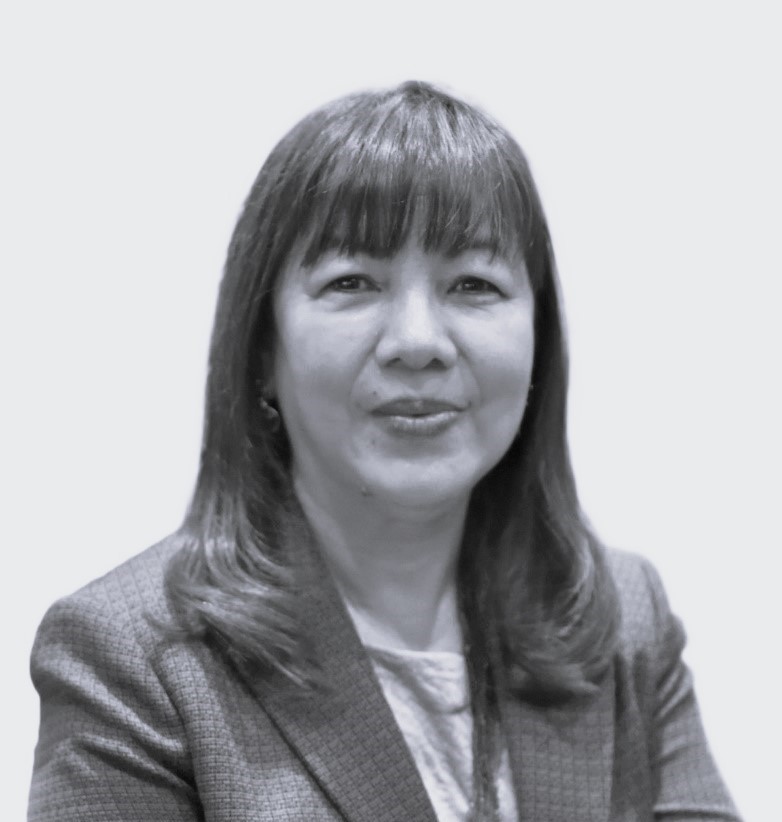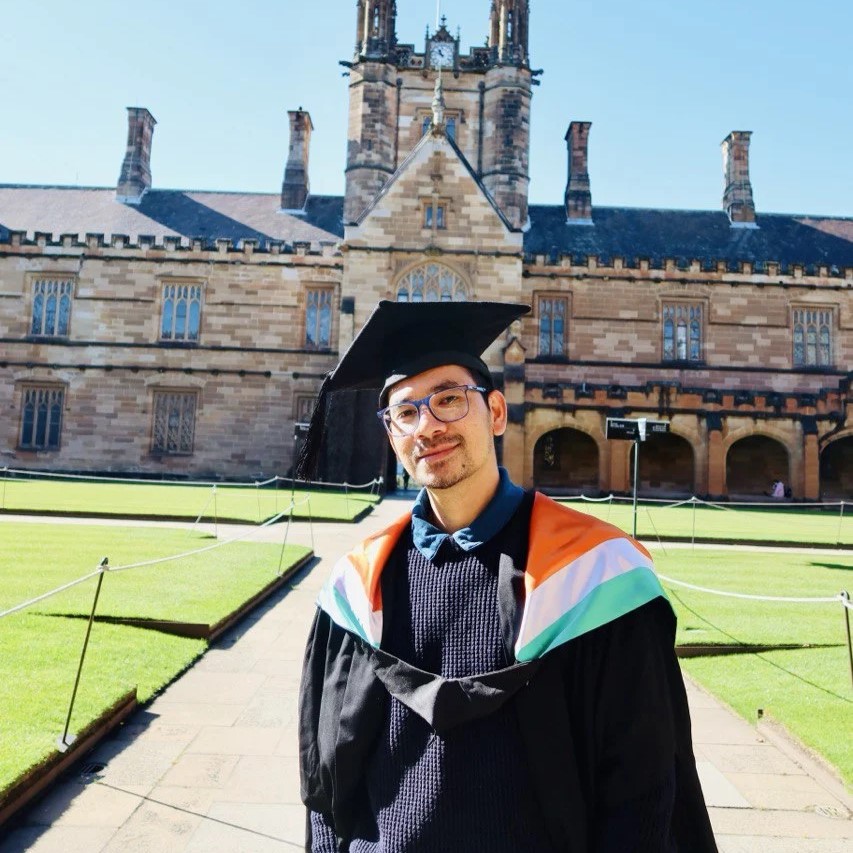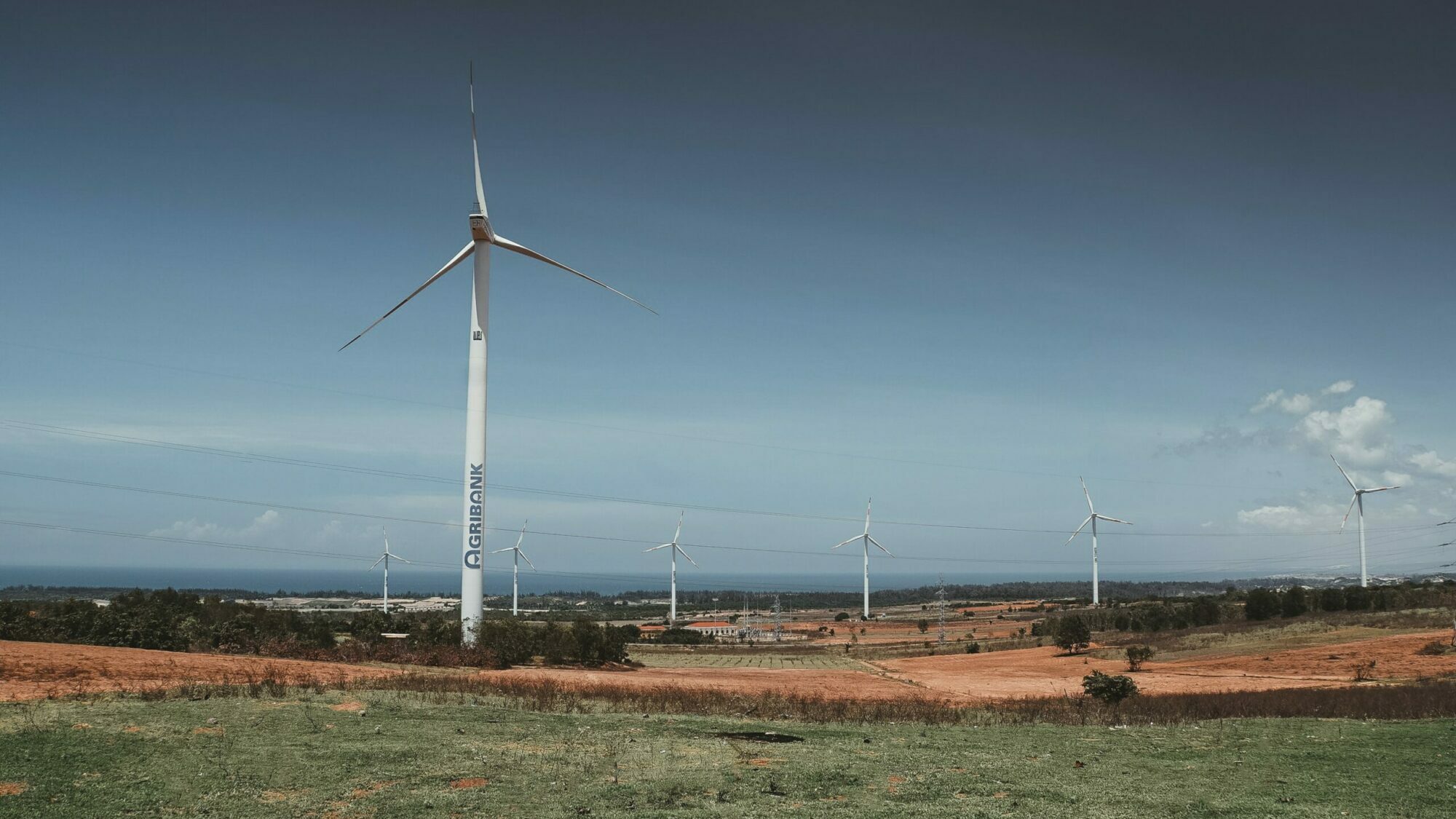

When I started my career in the Philippines more than thirty years ago, words such as localisation and inclusion were rarely mentioned, and definitely not major priorities within the international development space.
As the first woman, and first Filipino to become a program director of an Australian Government development project back in 2006, I’ve been strongly advocating for greater local agency in decision-making delivery, and accountability for many years.
While I would be lying if I said there hasn’t been some resistance across the broader industry along the journey, I feel we’ve reached an important turning point locally.
This means powerful and positive change. Lived experience drives my advocacy for localisation. It provided me with a voice and empowerment in those early years. I am committed to passing on these same opportunities to other Filipinos, particularly those who have traditionally been marginalised.
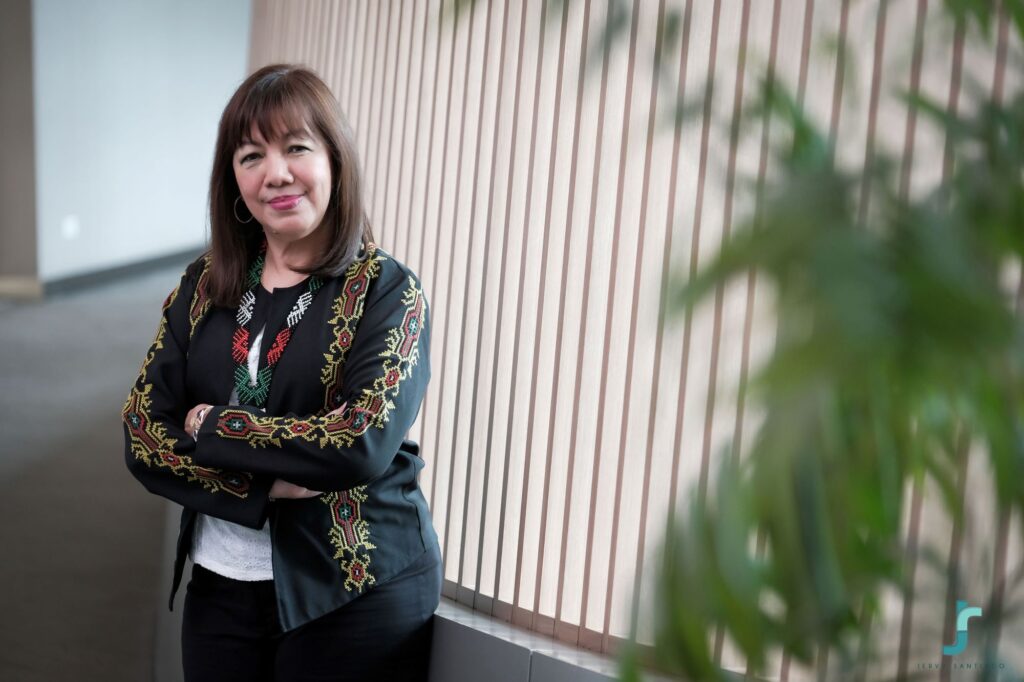
Milalin Javellana started her international development career in the Philippines more than thirty years ago and has been championing localisation throughout.
Localisation: Locally informed, locally led
Localisation is now a major priority, with the Australian Government at the forefront – driving development action that is locally informed and locally led, so it meets the needs of partner organisations, particularly government agencies.
That is vital, because it leads to more effective and sustainable development outcomes for local communities and organisations.
As a Filipina engaged in Australian development initiatives, throughout my career I have worked with more than thirty-five partner organisations – from national, subnational, local governments and CSOs. It began with Sagric, and that organisation became Coffey, before we became part of the Tetra Tech family.
Tetra Tech International is strengthening the fantastic work Coffey has been delivering in the Philippines, and has significantly enhanced the approach we take towards localisation.
Tetra Tech’s new localisation strategy
This has seen Tetra Tech develop a new localisation strategy that responds to Philippine policy makers’ objectives, and brings Australian Government’s localisation goals to life.
It is centered around four localisation pillars – respect, relationships, opportunities and governance.
At a project level this involves:
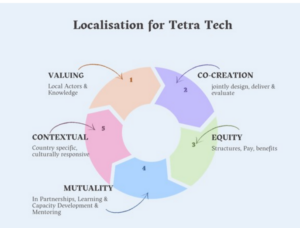
Localisation approach for Tetra Tech
- Valuing: Local Actors and Knowledge
- Co-creation: Jointly Design, Deliver and Evaluate
- Equity: Structure, Pay Benefits
- Mutuality: In Partnerships, Learning and Capacity Development and Mentoring
- Contextual: Country Specific, Culturally Responsive
The cumulative impact of local agency
Tetra Tech’s commitment to localisation is felt by my local team on a daily basis.
Our Filipino team engages in corporate meetings and key strategic company decisions. This starts with Tetra Tech’s Managing Director, Amy Gildea and flows throughout the entire organisation, within Australia and throughout the Indo-Pacific.
Our local voices are valued, and we contribute to the body of knowledge. We are being developed as thought leaders. This gives us greater agency within our roles and empowers us to deliver more effective development outcomes for our local communities.
This is extremely fulfilling, and validates the years I have spent championing localisation and its in-country benefits.
During my time as Program Director of the Philippines-Australia Human Resource and Organisational Development Facility (PAHRODF), we emphasised collaboration and partnership with government partner organisations in designing program interventions, to ensure they were relevant, sustainable, and led to better service delivery for Filipinos.
We also pioneered the engagement of Filipino experts to carry out program interventions. By doing this, we helped develop a pool of local service providers that are now serving other foreign-assisted development projects, as well as projects initiated by the public sector.
When we lift someone up, and give them the opportunities to empower themselves, they in turn empower others. It has a cumulative and exponential effect that ignites large scale transformation across society.
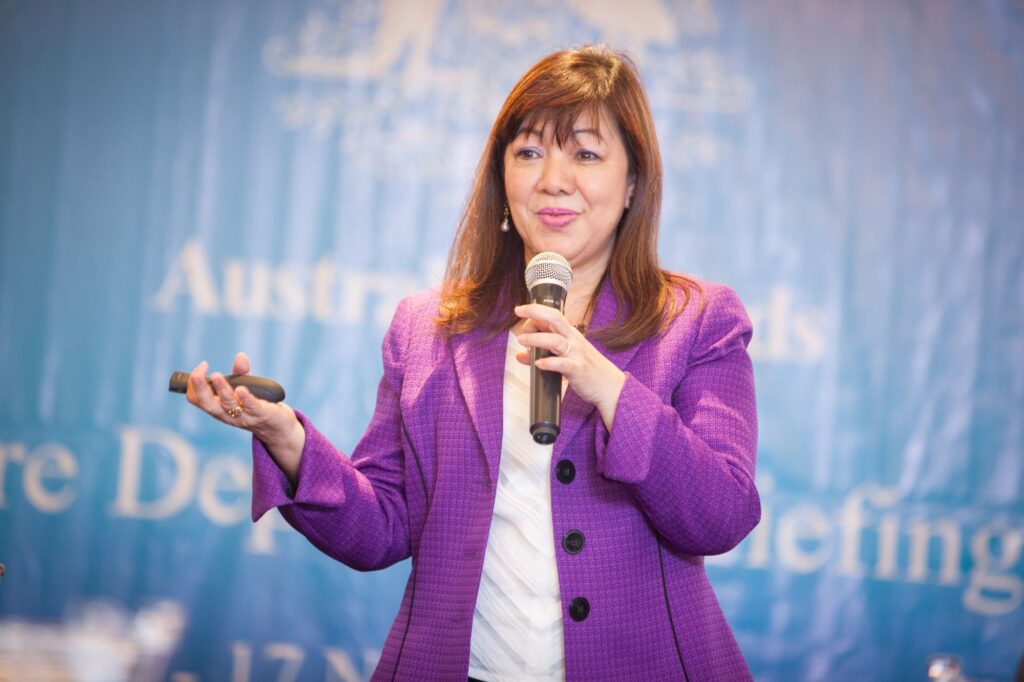
‘When we lift someone up, and give them the opportunities to empower themselves, they in turn empower others,’ says Milalin Javellana
Building competencies, investing in human resources
This thinking drives our capacity and capability-building interventions, including Australia Awards and the Alumni Engagement Program.
Australia Awards is a prestigious scholarship program by the Australian Government. It provides life-changing study opportunities in Australia for Filipino development leaders, especially women, people with disabilities, Indigenous people, members of the LGBT community, and members of other minority groups.
Upon their return to the Philippines, these individuals have empowered other Filipinos in their fields, communities and organisations through their re-entry action plan or REAP. The REAP is a unique mechanism of the Philippine program, which enables Filipino scholars to apply their Australian education to meaningful development programs in the Philippines.
Australia Awards alumni have gone on to hold key policy maker, department and stakeholder positions that create substantive impact within the Philippines, and strengthen our nation’s relationship with Australia and the shared regional development goals.
It is about creating systematic change that leaves a legacy within the Philippines, and I am proud to lead a team that facilitates this.
Looking to the future
While there is so much to be proud of, there is still much more to be achieved.
After decades advocating for greater localisation in the international development space, I believe we have reached a transformative juncture – where ideas, learnings and policies can be scaled to achieve long-held economic and social development aspirations.
With the Philippine Government, Australian Government and Tetra Tech International working together, we have the perfect platform to empower locally led change, and in turn advance a peaceful, stable, and prosperous Indo-Pacific region.
Read more about Tetra Tech International’s empowering work within local communities in the region.
